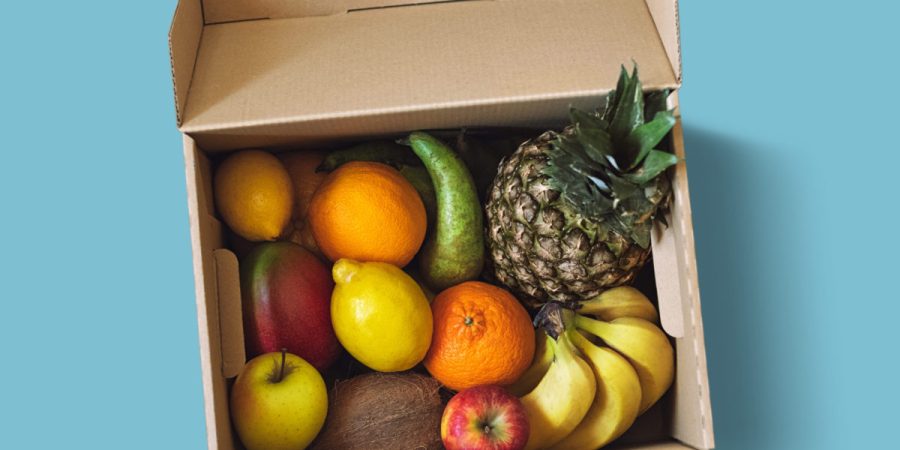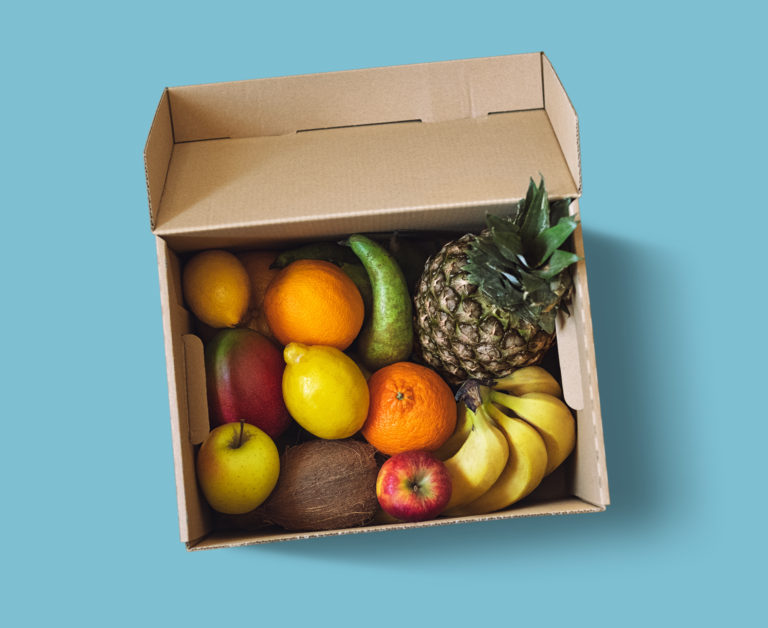Are you looking to import food into Singapore for your business? There are several important regulations that you have to follow to legally bring food into the country. We’ve written this step-by-step guide to explain these regulations, and how you can have your foreign food products brought in.
Summary of how to import food into Singapore:
- Check your food products’ import classification
- Apply for Trader’s license
- Apply for customs permit
- Comply with relevant food import regulations
- Protect your business from food poisoning liability
Step 1: Check your food products’ import classification before importing
The Singapore Food Agency (SFA) is responsible for regulating food imports.
SFA maintains an import classification system, which classifies different food products into individual categories. Each category of food products will have specific import regulations that you have to adhere to.
Here is the list of import classifications:
SFA Food Products Import Classification | ||
| Food Category | Description | Examples |
| Meat | Whole carcasses, or parts of any animal, whether chilled, frozen, processed or in canned form and contains more than 5% of meat content | Chicken Pork Beef Lamb Venison Luncheon Meat Meat Sausages Cured Meats like Ham, Bacon, etc. |
| Fish | Fishes, crustacean, molluscs, sponges, marine invertebrates and any other forms of aquatic life | Seabass Salmon Prawns Scallops Oysters Lobsters Geoduck Sea Cucumber |
| Fresh Fruits and Vegetables | Raw and unprocessed fruits and vegetables. Fruits and vegetables which have been processed, such as by cutting, peeling, canning and freezing are classified as Processed Food. | Whole garlic bulbs Whole lettuce heads Whole tomatoes Whole pineapple Whole thyme stalks |
| Fresh Eggs | Table eggs from hens, ducks, quail | |
| Processed Eggs | Salted and preserved eggs, liquid eggs, powdered eggs, cooked eggs | |
| Processed Food | All other food products and food supplements not grouped under the above categories | Rice Bread Biscuits Jams and Spreads Cheese Pre-Diced Garlic Pre-Shredded Lettuce Pre-Sliced Tomatoes Pre-Sliced Pineapple Dried Herb Flakes Dried Raisins Frozen Fruits & Vegetables Canned Fruits & Vegetables Instant Noodles Coffee Tea Soft Drinks Cow Milk, Oat Milk, Soy Milk |
Incorporate your company, if you haven’t already done so
Before you can apply for a Trader’s License (basically, the license you need to import food into Singapore), you must have a company.
If you don’t already have a company, don’t worry. It’s an easy and quick process to start a company in Singapore. You can start a Private Limited, Sole Proprietorship, Partnership, etc. It is, however, recommended that you start a Private Limited. This is because Private Limiteds provide more liability protection compared to Sole Proprietorships and Partnerships.
One of the easiest ways to start a company is to engage the services of an online incorporation company. These online incorporation companies typically have incorporation packages starting from only $350, and incorporation can be done within 1 day (assuming you have all the required information on hand).
Here’s a guide we’ve written on how to start a Private Limited in Singapore.
Step 2: Apply for the relevant Trader’s Licence
Now that you’ve got your company set up, you’ll have to apply for a Trader’s License from SFA. A Trader’s License is basically a license to import food. There are different types of Trader’s Licenses depending on the specific food products you wish to import. Some types of food, like eggs, do not require a Trader’s License. We’ve constructed a table detailing this below.
Summary of Trader’s Licenses to Import Food into Singapore | ||
Food You Want To Import | Trader’s License Name | Cost |
| Meat and fish | Licence for Import/Export/Transshipment of Meat and Fish Products | $84/year |
| Fresh fruit and vegetables | Licence for Import/Transshipment of Fresh Fruits and Vegetables | $378/year |
| Preserved/liquid/processed eggs Processed food Food appliances | Registration to Import Processed Food Products and Food Appliances | Free |
| Fresh eggs | Licence to Import Table Eggs | Free |
Example: Let’s say you want to import meat, fish, and fresh fruit and vegetables. You would have to apply for 2 licenses:
- Licence for Import/Export/Transshipment of Meat and Fish Products
- Licence for Import/Transshipment of Fresh Fruits and Vegetables
How do I apply for a Trader’s Licence?
- Select the relevant license from the GoBusiness portal, and complete the online application
- Pay relevant fees
Note: You must have a bank account that can make GIRO payments. SFA will use GIRO to deduct Trader’s License fees.
Step 3: Apply for customs permit
After you’ve applied for the relevant Trader’s Licence, you’ll have to apply for a customs permit. You must have a customs permit for each food shipment coming into Singapore.
You can get your customs permit online, via the TradeNet system. TradeNet is a government platform for businesses to declare their imports/trade activities.
Customs permit cost
Each customs permit typically costs $2.88.
Information required when applying for customs permit
For every customs permit you request, you must provide the following key details:
- Establishment Code for the country you’re importing the goods from (e.g. The USA has an Establishment Code of US99999). Here’s the full list of Establishment Codes.
- Product Code for the specific products you’re importing (e.g. Nutmeg has a product code of HFQØNM). Here’s the full list of Product Codes.
After your import permit is approved by both Singapore Customs and the SFA, you will receive a Cargo Clearance Permit (CCP). This allows your goods to pass into Singapore.
Importing produce protected by CITES
The Convention on International Trade in Endangered Species of Wild Fauna (CITES) regulates the export/import of certain food products from endangered species. For instance, seahorses, which can be popular for certain cuisines/medicinal uses, are protected under CITES.
If you wish to import seahorses or other CITES-protected products, you must:
- Obtain a CITES export permit from the country where you’re importing from
- Obtain SFA approval to import the product into Singapore
Food import fees
You will have to pay an import fee for each food shipment you make. Import fees are deducted from the GIRO account.
Import Fees for Food Products arriving in Singapore | |
Food Category | Fee |
| Meat (chilled/frozen/processed) | $4.60 per 100 kg |
| Meat (canned) | $77 per shipment |
| Fish | $3 per shipment |
| Fresh fruits and vegetables | $3 per shipment |
| Table eggs | $62 per shipment |
| Processed eggs (preserved/salted/liquid/etc.) | $62 per shipment |
| Other processed egg products | $22 per shipment |
| Other processed food | No fees |
Step 4: Comply with the food import regulations
You must comply with food importation laws in Singapore. The specific law governing this is the Sale of Food Act. This Act ensures that imported food is fit for consumption by people in Singapore.
Meat and Fish: Wholesome Meat and Fish Act
Meat Import Regulations
Here’s a handy summarised checklist of the key requirements when importing meat:
| Requirement No. | Regulation Summary |
| 1 | Only import meat from a list of SFA-approved sources. List here. |
| 2 | Meat must meet (no pun intended) SFA’s veterinary criteria. |
| 3 | Meat must come from animals slaughtered within certain time frame. |
| 4 | Meat must carry health certificate from exporting country. |
- Meat to be imported only from SFA-approved sources
You can only import meat products from a list of SFA-approved sources. Different countries have different meat products that are either allowed, or not allowed, to be imported into Singapore. SFA’s list of approved vendors covers about 40 countries around the world.
For instance, there are over 80 approved vendors in Australia that you can import meat from. You can import beef, mutton, pork, and poultry from Australia. On the other hand, there is only 1 approved vendor in Indonesia that you can import meat from. You can also only import frog legs from this 1 approved Indonesian vendor.
- Meat to meet SFA’s veterinary requirements
Meat products must meet SFA’s veterinary criteria. This means the meat must not contain diseases or chemical preservatives, among other requirements.
There are different specific veterinary standards for different meat products. For instance, poultry must be imported from a country that has been free from Avian flu for the last 12 months. Pork must not have come from animals fed on swill, which can impart dangerous parasites into the meat.
SFA Veterinary Criteria List:
- Time Limits for Meat Imports
Meat that is too old cannot be imported into Singapore. Here are time limits for different meat types:
Time Limit for Meat Imports into Singapore | ||
| Meat Type | Time from Slaughter | Import Rule |
| Frozen pork | >6 months from date of slaughter | Cannot import |
| 3-6 months from date of slaughter | OK to import, but must undergo lab testing in Singapore before you can sell it | |
| <3 months from date of slaughter | OK to import, may be selected for random testing by SFA | |
| Frozen Beef/Mutton/Poultry | >12 months from date of slaughter | Cannot import |
| 6-12 months from date of slaughter | OK to import, but must undergo lab testing in Singapore before you can sell it | |
| <6 months from date of slaughter | OK to import, may be selected for random testing by SFA | |
- Meat Imports Must Carry Health Certificate
You must obtain a health certificate from the relevant authority of the country that you’re exporting from. For instance, if you’re exporting meat from Brazil, you’ll need a health certificate from the Brazilian authorities.
Fish and fish products import regulations
Here’s a handy summarised checklist of the key requirements when importing fish and fish products:
| Requirement No. | Regulation Summary |
| 1 | Live oysters can only be imported from SFA-approved list of countries (see point 1 below) |
| 2 | Certain types of fish products are banned from imports (see point 2 below) |
| 3 | Fish and fish products must carry health certificate from exporting country |
Fish and fish products are usually subject to lighter import regulations compared to meat.
However, some fish and fish products which carry higher-risk for foodborne illnesses must meet additional importation criteria.
- Live oysters can only be imported from specific countries
These countries are:
- Australia
- Canada
- France
- Ireland
- Japan
- Netherlands
- New Zealand
- UK
- USA
- No importing certain restricted fish products
It’s illegal to import chilled crab meat, chilled shucked raw oysters, chilled cockle meat and chilled cooked prawns/shrimps.
- Fish and Fish Product imports must carry health certificate
Each consignment of live oysters, frozen oysters, frozen blood cockle meat, frozen cooked prawns and frozen raw/cooked crab meat must be accompanied by a health certificate issued by the relevant authority of the exporting country.
Fresh fruits and vegetables: Control of Plants Act
Here’s a handy summarised checklist of the key requirements when fresh fruits and vegetables:
| Requirement No. | Regulation Summary |
| 1 | Ensure all fruits and vegetables don’t contain harmful organisms/substances (except for pesticides) harmful to people |
| 2 | Ensure the container for the shipped fresh fruits and vegetables is clean |
| 3 | Ensure shipment containers are properly labelled with name of producer, address of producer, and name(s) of fresh fruits and vegetables inside |
- Ensure all fruits and vegetables don’t contain harmful organisms/substances (except for pesticides and toxic chemical residue)
SFA has set limits on pesticides and toxic chemical residue for fresh fruits and vegetables. You must ensure that your imported produce does not exceed these limits.
- Ensure the container for the shipped fresh fruits and vegetables is clean
The container you use to ship your produce must be clean and fit for storing fresh produce.
- Ensure shipment containers are properly labelled
All shipment containers must be labelled with:
- Name of producer of fresh fruits and vegetables (e.g. New York Food LLC)
- Address of producer of fresh fruits and vegetables (e.g. 81st Street, 5th Avenue, NY, USA)
- Name(s) of fresh fruits and vegetables inside the shipment (Tomatoes, garlic, etc.)
Fresh eggs: Animal and Birds Act
| Requirement No. | Regulation Summary |
| 1 | Fresh eggs must be imported from SFA-approved list of farms, from specific countries only |
| 2 | Each shipment of eggs must come from one farm only |
| 3 | Eggs must carry veterinary certificate from exporting country |
| 4 | Importer must notify SFA of arrival of each egg shipment |
| 5 | Eggs to undergo inspection upon arrival |
- Fresh eggs can only be imported from specific farms, in specific countries
The permitted countries are:
- Australia
- Japan
- Malaysia
- New Zealand
- Sweden
- Korea
- Thailand
- USA
- Each shipment of eggs must come from one farm only
If you are importing eggs from multiple farms, split them into different shipments.
- Eggs must carry veterinary certificate from exporting country
The veterinary certificate for the eggs must certify the following:
(i) Highly pathogenic avian influenza (HPAI) and H5 and H7 low pathogenicity avian influenza (LPAI) are notifiable diseases in the country of export
(ii) the country has been free from highly pathogenic avian influenza (HPAI) for the past 3 months before the eggs were exported
(iii) the country has been free from low pathogenicity avian influenza (LPAI) of the H5 and H7 subtypes for the past 3 months before the eggs were exported
(iv) the eggs are unfertilized and come from layer flocks kept in a form approved by SFA for egg imports
(v) the farm where the eggs originate has been tested and is free from Salmonella Enteritidis, and no case of velogenic Newcastle disease, Infectious bronchitis, Infectious laryngotracheitis, Avian encephalomyelitis, Infectious bursal disease, EDS ’76 or chronic respiratory disease due to Mycoplasma gallisepticum or M.synoviae, Salmonellosis (including Salm. pullorum), duck virus enteritis or duck viral hepatitis has been diagnosed on the farm for the past 3 months before the eggs were exported
(vi) the eggs are clean, fresh and fit for human consumption, and packed into new disposable boxes for export.
Source: https://www.sfa.gov.sg/docs/default-source/tools-and-resources/resources-for-businesses/eggveterinaryconditionexcludingmalaysia.pdf
- Importer must book egg inspection appointment for each shipment
Before your eggs arrive, you must book an egg inspection slot online, via AVA’s Intelligent Food Approval & Safety Tracking System (iFAST) at https://ifast.sfa.gov.sg/eserviceweb/.
You will require your SFA Import licence number & flight details for your egg imports to make the online booking.
If you do not make a prior booking appointment, SFA will charge you $80/hour for the inspection when your eggs arrive.
- Eggs to undergo inspection upon arrival
When the eggs land in Singapore, you will have to present the necessary documents to an authorised officer. Key documents include your Customs Clearance Permit (CCP), plus your Veterinary Health Certificate (from step 3 above).
The officer will inspect your eggs. Inspection may include testing a sample of your eggs for their Haugh Units. A Haugh Unit tests the quality of eggs by measuring the height of the egg white. Your eggs must have at least 60 Haugh Units to pass the inspection. If the eggs pass the inspection, and your documents are prepared properly, the officer will release the eggs to you.
SFA can order a further bacteriological examination of your eggs before releasing them to you. Also, samples of eggs may be taken for lab testing to ensure food safety.
Do I need to send my food imports for laboratory tests?
No, unless you’re importing high-risk food products. Examples of high-risk products include frozen blood cockle, or frozen prawns.
Otherwise, you ordinarily don’t have to send your food imports for lab tests. Although you don’t have to lab test your imports, you still must abide by food safety regulations. SFA maintains a lengthy list of contaminant limits for food imports. You will have to ensure that your food does not contain contaminants that exceed the permitted levels. Here’s the full list of SFA food contaminants.
Here’s an example of one such contaminant limit, for inorganic arsenic:
| Contaminant | Food | Maximum Limits | Regulation/ Schedule No. |
| Inorganic Arsenic | Seaweed | 2 ppm | Regulation 31 |
| Polished rice | 0.2 ppm | ||
| Husked rice | 0.35 ppm | ||
| Fish | 2ppm | Refer to SFA circular dated 17 Mar 2020, (Maximum Limits for Marine Biotoxins, Inorganic Arsenic, and Methanol in Food) | |
| Crustaceans | 2ppm | ||
| Molluscs | 1ppm |
Step 4: Clear food inspections
Some types of food products, such as fresh eggs, and certain kinds of meat/fish products (e.g. oysters) must be inspected when they arrive in Singapore. SFA can also conduct random inspections on other imported food.
When you get your Customs Clearance Permit (CCP), you’ll receive a message stating whether your shipment requires inspection by SFA before being released to you. If your shipment needs to be inspected, here are the steps:
If SFA needs to inspect your food shipment, it’s best that you make an online booking through the SFA’s Inspection & Laboratory e-Services.
The SFA inspector will request the following documents during the inspection, so make sure you have them ready:
- Your Cargo Clearance Permit,
- Any relevant documents, e.g. invoices and health certificates,
- The shipment of food to be inspected. For frozen raw meat, 1 carton is to be surface thawed before the inspection.
Shipments that do not meet SFA’s requirements cannot be sold in Singapore. If you’re in a thin-margin industry like food wholesaling, this can affect your company’s financial performance substantively. Make sure you adhere to SFA’s requirements so that you’re not left with dead stock that you can’t sell!
What are the penalties for illegally importing food into Singapore?
It is a criminal offence to illegally import food into Singapore.
Penalties include:
First offence: Fine up to $5,000.
Second offence onwards: Fine up to $10,000, and/or jail of up to to 3 months.
Real cases:
Importer fined $11,000 for illegally bringing in 5,450kg of processed food: In 2022, a company called Tian Cai Import & Export was fined $11,000 for importing food items without the proper licenses. The company’s sole director was fined a further $8,000. SFA seized the illegal imports.
Wholesaler fined $10,000 for illegally bringing in 600kg of vegetables: In 2021, a company called Fresh Choice Avenue was fined $10,000. The company had imported 600kg of vegetables without declaring the imports to SFA.
Step 5: Protect your company from food poisoning liability, and damage to food shipments
Your customers might get sick from the imported food that you’ve sold them. These customers can easily sue you for any sickness they develop from eating your food. If you wholesale your food to other food establishments, these food establishments can also hold you liable for supplying them with faulty produce.
It’s therefore crucial that you protect yourself from food poisoning liability. Make sure you get Public Liability Insurance with Food Poisoning Extension, from $9/month.
Consider additional forms of protection for your business:
- Work Injury Compensation (WICA) Insurance from $5/month
- Commercial Property Insurance from $12/month
- Business Interruption Insurance from $9/month
Also, you should protect your food shipments while they’re in transit to you. Marine Cargo Insurance can protect your food shipments from damage or loss while they’re transported to you.
- Marine Cargo Insurance from $10/shipment



